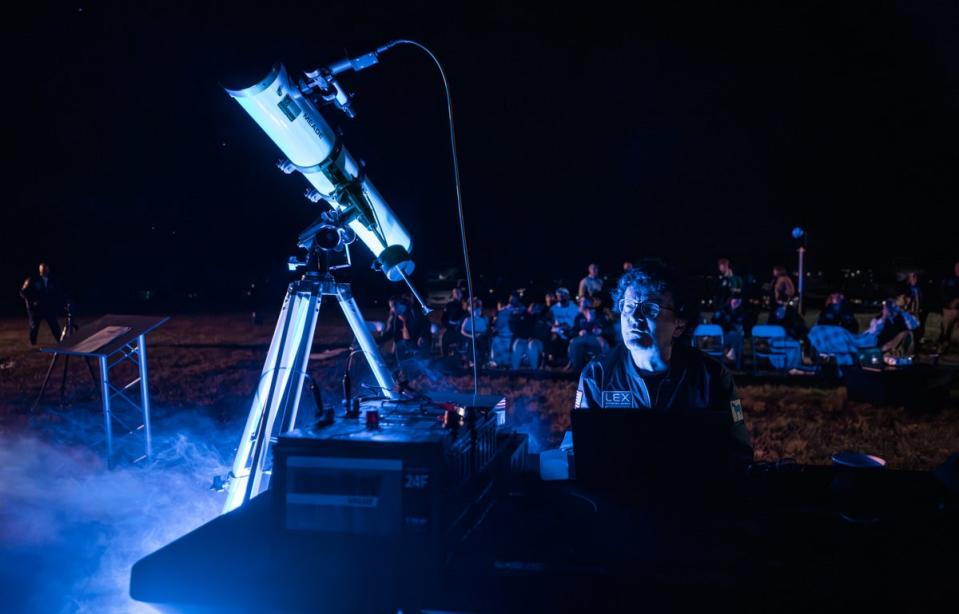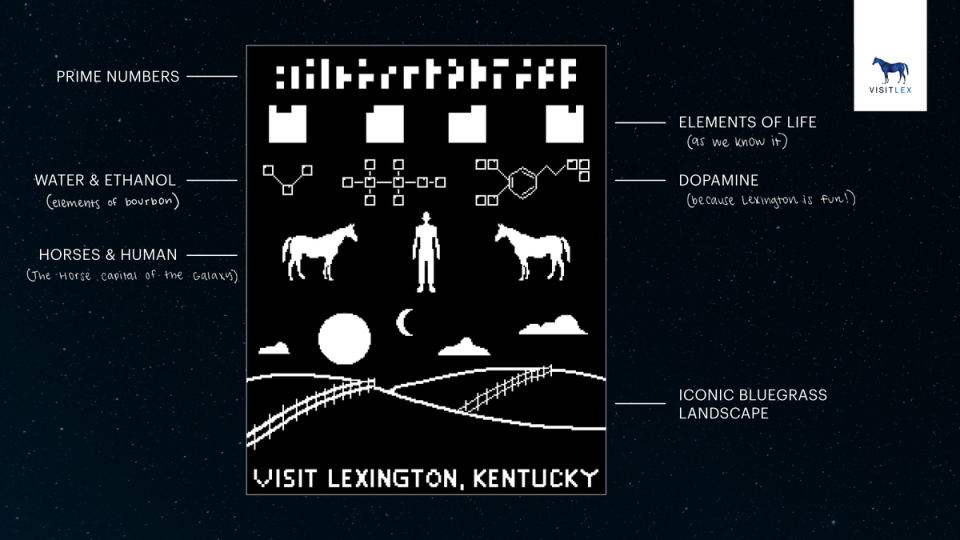Kentucky tourist board welcomes UFOs to state: ‘Just don’t eat us’
A tourist board in Kentucky is seeking to expand the state’s reach and entice visitors from far, far away.
No, not visitors from distant countries.
In fact, not even visitors from Earth.
Instead, the Lexington Convention and Visitors Bureau’s new advertising campaign is targeting beings that are a bit more extra-terrestrial.
Recent UFO “revelations” (plus maybe the odd congressional hearing on aliens) have pushed VisitLEX to try to appeal to tourists from outer space – just in case it turns out that aliens do exist.
UFOs may not yet be able to visit the tourist board’s website or keep up to date on all things Kentucky through social media, but VisitLEX has found a way around this by literally beaming their advertising campaign into space.
According to a press release, VisitLEX teamed up with a group of scientists and scholars in Lexington to use an infrared laser to beam a message towards different planets in the TRAPPIST-1 solar system 40 light years away.
This solar system was chosen because it is the most studied planetary system outside of our own and contains the largest number of potentially habitable Earth-sized planets, according to the release.

The message was beamed up from the Kentucky Horse Park, and invited any potential extraterrestrial beings who might fancy a trip to the Bluegrass state.
The FAA-approved message contains a range of photos of Lexington, audio recording of blues musician Tee Dee Young, the elements of bourbon, and a coded bitmap image of the origin and intent of the transmission.
Aliens depicted in Hollywood blockbusters have usually targeted the likes of New York City or areas in California, but Lexington is adamant that the city should be the first choice for outer-space travellers.
“We believe Lexington is the best place on Earth,” said VisitLEX President Mary Quinn Ramer.

“It’s the ideal location for extraterrestrial travellers to begin exploring our world.”
Tourist campaigning knows no boundaries at VisitLEX, while others are looking at Artificial Intelligence as the future of travel.
Ms Ramer said they are “thinking even further ahead and looking to deep space”.
However, there is a catch to the groundbreaking advertising campaign.
The beamed message won’t reach its “interstellar destination” for around 39 years – and it will take around 40 years after that to receive any response from any potential other-worldly holidaymakers.
While Lexington waits for the invite to reach prospective tourists, the tourist board hasn’t forgotten about all visitors currently here on Earth.
Human tourists are invited to come and visit artefacts from the historic message-beaming event and even leave their own note for the aliens if and when they visit Kentucky.
“Of all the things we’ve been beaming into space, why not a positive, friendly message?” Dr Breen Byrd, an expert in Germanic Languages and Linguistics, said in a video promoting the campaign.
“Come to Lexington,” she added. “We have horses and bourbon. Just don’t eat us!”


